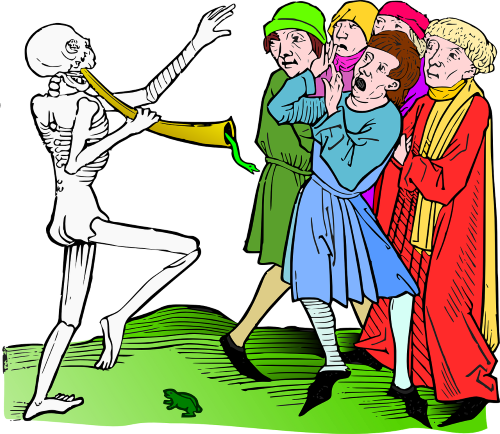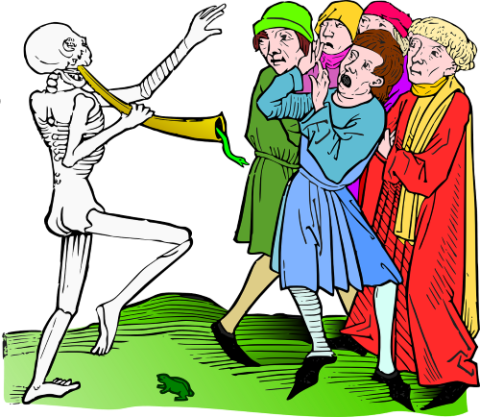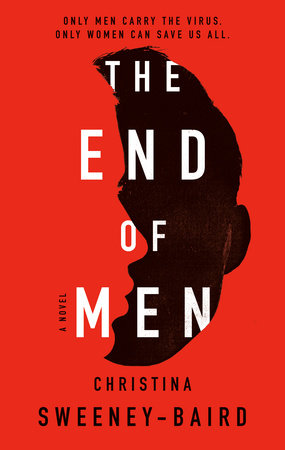
(Pixabay)

(Pixabay)
The End of Men is a classic case of speculative fiction that's a little less speculative than it might have been before.
We're in a brave new world now. Or, rather, we're forced to accept a reality different from the old world, where pandemics not only can happen, but will. Viruses are lawless, borderless and vicious. And while physical (and social) comorbidities exacerbate the danger for some more than others, pandemics can be terrifyingly nondiscriminatory, striking down the overly careful and the seemingly healthy with the same impunity as the reckless or the ill.
So what if the next pandemic were to clearly discriminate? Say, on the basis of sex?
Christina Sweeney-Baird's well-timed debut leads with this provocative premise: a super-virus with a 90% mortality rate that kills only men. After originating from illegal animal trafficking in Scotland, the Great Male Plague rockets across the globe, leaving chaos, carnage and unspeakable grief in its wake. Only 10% of the world's fathers, husbands, sons and brothers survive the deadly fever, miraculously immune or else stuck somewhere the virus can't possibly reach: marooned in a boat off the coast of Iceland, for example, or barricaded in a farmhouse in the Scottish countryside.

Presented as a kind of oral history featuring the testimonies of more than a dozen women (and a few men), The End of Men wastes no time in setting off on a lightning-paced journey of fear, loss and adaptation. It is a testament to the author's skill that the book holds up to an audience that now understands firsthand what pandemics can be like: the initial disbelief, the mounting dread, the pointing fingers, the exhausting uncertainty. Yet despite its massive scope — cataloging the experiences of doctors, government workers, nannies, scientists, writers and housewives from Scotland, Singapore, England, the United States, New Zealand and elsewhere — Sweeney-Baird maintains a firm grasp on the heart of her story: the people. Each voice is an individual, a window into a life, which keeps a global catastrophe rooted in intimacy.
What follows is a specific and nuanced collection of stories that doesn't slide into stereotypes or offer easy answers about what a world without men would be like. Society neither dissolves into ruin nor evolves into a feminist utopia. After all, women are no less capable than men of anything, including selfishness, apathy and greed. Some women lose everything from the Great Male Plague; others gain power, prestige, freedom and fortune. Some can barely cope with their spouses' deaths; others relish their new autonomy. Some even manage to find love.
Yet Sweeney-Baird seems reticent to really grapple with the larger ramifications of a world suddenly not dominated by men, leaving key questions not only unanswered but unaddressed.
Her insights into the mass grief of this kind of pandemic are chilling, but what is beneath the loss? What is beyond it? What are the politics of this new women's world? The tantalizing hints she does include — independence for Scotland, the collapse of communist China, anti-men crackdowns in nations ripped apart by sex trafficking, a dating app that guides women through first-time love with other women — are footnotes rather than features, mentioned more or less in the background and left underexplored.
It also bears mention that the concept of gender itself in The End of Men is uncomfortably limited. Even if the Plague chooses its prey based on a strict binary, targeting those with a Y chromosome while sparing those without (whether or not they are actually men), we know that gender — in terms of identity, expression and experience — exists on a much more fluid spectrum. But apart from a lone transgender side character in a short chapter toward the end, there is no discussion of trans, non-binary or intersex people at all, which in a book that foregrounds sex and gender is at best a major missed opportunity and at worst a harmful example of erasure.
Rather than speculating about what might happen when the distribution of power among the genders is completely upended, which one might expect, Sweeney-Baird spends much of our time plumbing the emotional toll that could accompany any story about any pandemic, including our own. It reminded me of the infamous "Blip" in "Avengers: Endgame," when half of all life vanishes at random, with no preferences based on age, sex or species.
But the whole speculative point of The End of Men is that this Plague is not random; it specifically targets the people born with the power and privilege our world affords to men. So what happens in the vacuum left behind? Do the mostly female survivors jockey for supremacy and create a new hierarchy to fill it? Or do they replace the old model, throwing out ancient power imbalances once and for all? Would women handle being the majority better than the men who preceded us? Would there be less violence, less inequity? Would there finally be a treatment for endometriosis? Would everyone — men, women, non-binary people — feel safe walking home at night?
As a Catholic woman, these questions have real salience to me. If women were given an equal share — or, in this case, a greater share — of influence in the church (and other predominantly male institutions like governments and businesses), could things change for the better? Could we resist the lure of control and self-interest and create something less hierarchical, more communal and more liberatory for all? Or would we fall into our own patterns of abuse and corruption, forgetting all we ought to have learned from our own exclusion?
Perhaps it’s asking a lot for a novel about an apocalypse to explore the ways a non-male majority would or would not revolutionize the systems of power in society. That's not what we were promised with The End of Men, and perhaps it is unrealistic to wonder if radical new ways of living could be born out of the trauma of a super-virus rather than cultivated with slow, thoughtful intention over time.
The End of Men is predicated on the knowledge that the world, now, is a man's world. Speculative fiction can sometimes show us possible ways forward. The End of Men seems, largely, to choose not to.
And maybe, that's the hidden power of this book: It is a challenge to us to do our own heavy lifting to envision a world that belongs to more than men.
Advertisement








